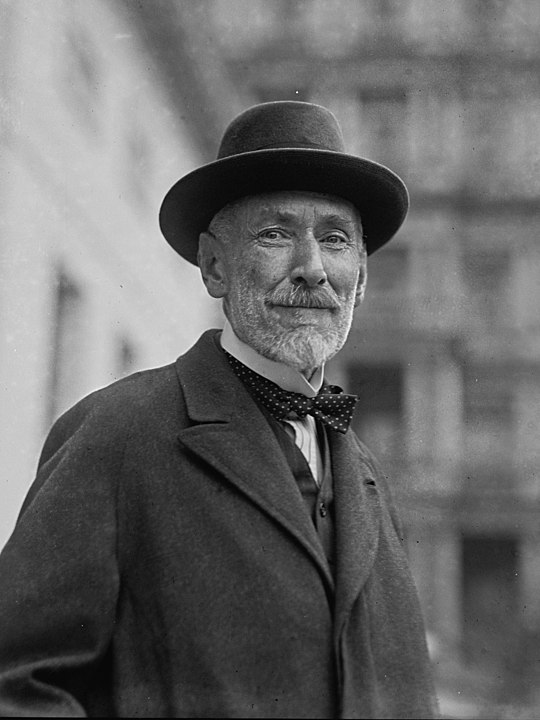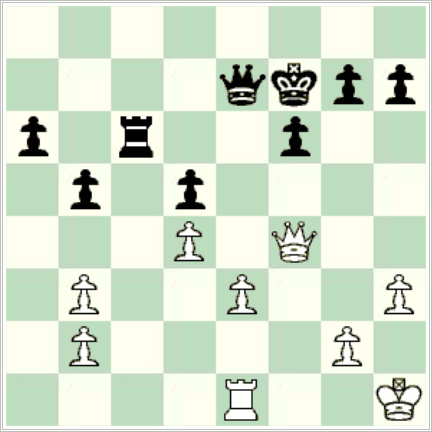The “Privy Council” is in the headlines all of a sudden; though the link from this to Irish chess is a very slight one, it leads to a very interesting character in Irish chess, and indeed in Irish history.

(via U.S. Library of Congress)
Sir Horace Curzon Plunkett (1854-1932) was an Anglo-Irish politician and agricultural reformer, who is most famous as a pioneer of the co-operative movement in Ireland. He was an MP for Dublin South from 1892-1900, and later a member of the first Seanad Éireann in 1922-23, among many other posts and activities in a long and energetic career. He became a Fellow of the Royal Society in 1902.
He was appointed to the Privy Council of Ireland in 1897; it seems this was distinct from but played a comparable role to the Privy Council of Great Britain. It seems it was never formally abolished but fell into disuse after 1922.
His active chess career seems to have been confined to his younger days. He played for Oxford versus Cambridge four times (the 2nd to the 5th such matches), and in the Lowenthal Cup tournament in London in 1885. He played board 1 for the House of Commons in the telegraph match versus the U.S. House of Representatives in 1897, winning his game. The Edo rating project places him around 2100 in the 1870’s and 1880’s.
He was the President of Dublin Chess Club from 1904-23, and seems to have played a relatively active role. His biggest contribution came 100 years ago, when Dublin C.C. was at a low ebb due to post-war depression, and the idea of inviting Capablanca came up.
“Sir Horace’s quick mind saw the possibilities at once. He jumped at the suggestion. … Sir Horace went to London and arranged matters. Capa. agreed to come to Dublin and give displays on December 4 and 5, for a fee of 12 guineas a display, plus travelling expenses. The displays, given at the Mansion House, were a great success. Capa. played 40 games each night … . Sir Horace took charge of the Master, and put him up at his own house … .”
—A. A. Luce, A History of Dublin Chess Club, ca. 1965, p. 24.
One of the games on the second evening was against Sir Horace himself. It was agreed drawn in the following position:

Final position (after 32. Re1)
Plunkett stands substantially better in the final position and could well have played on.
[Click to replay the full game (which is not in the ICU games archive as of the date of this post).]
There is an excellent photograph of taken before the start of the first simul, featuring Plunkett, Capablanca, and the Lord Mayor of Dublin in the RTÉ Stills Library, which can’t be shown here for copyright reasons (search for Capablanca).
